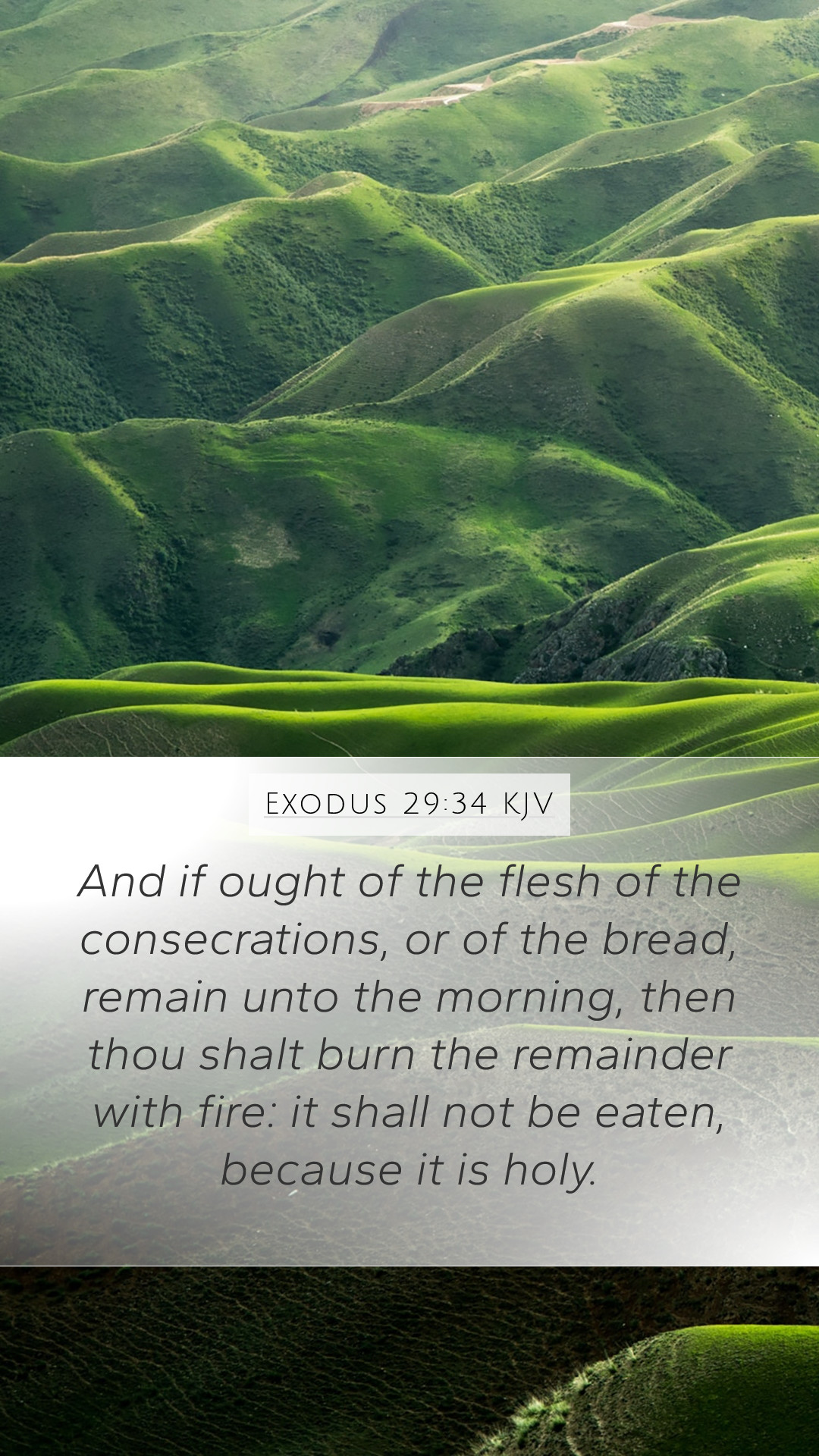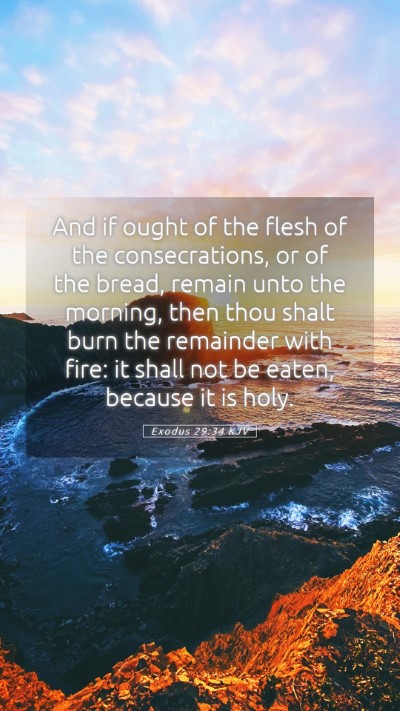Bible Verse Commentary for Exodus 29:34
Verse: "And if any of the flesh of the consecrations, or of the flesh of the sacrifice of his peace offerings, be eaten at all on the third day, it shall not be accepted, neither shall it be imputed unto him that offereth it: it shall be an abomination, and the soul that eateth of it shall bear his iniquity." - Exodus 29:34
Understanding the Context
The Book of Exodus presents significant laws and ordinances given to the Israelites after their exodus from Egypt. In this chapter, instructions for the consecration of the priests and the offerings related to this sacred event are provided. This verse specifically addresses the importance of ritual purity and proper observance of God's commands, reflecting the overarching theme of holiness within the Israelite community.
Bible Verse Interpretations
Matthew Henry's Commentary: Henry emphasizes the seriousness of the sacrificial system and God's commands regarding offerings. He points out that those who would eat of the sacrifices must adhere strictly to the guidelines laid out by God. Eating on the third day illustrates a violation of the ritual, which would lead to unacceptable worship and consequent sin. This is a warning against irreverently treating sacred matters.
Albert Barnes' Notes: Barnes highlights that the prohibition against consuming the meat on the third day signifies God’s expectation of the Israelites to maintain a sense of reverence over their religious practices. This verse reflects the idea that improper engagement with holy offerings results in defilement, thereby risking one's standing before God.
Adam Clarke's Commentary: Clarke notes that the stipulation for the time frame of eating the sacrifice serves to reinforce the concept of sanctity attached to the offerings. He reasons that this was part of the overall method to ensure that the worshiper approached God with authenticity and devoutness. Tasting the offerings beyond the prescribed period is seen as a transgression that brings upon oneself the weight of sin.
Bible Study Insights
- This verse reinforces the necessity for obedience to God's commands, highlighting the moral aspect of worship.
- It shows the importance of timing and readiness when approaching sacred rites—something applicable to modern worship practices.
- The seriousness of ritual purity in ancient Israel serves as a model for Christians regarding their own offerings of worship and service.
Application of the Verse
For modern readers, Exodus 29:34 serves as a reminder about the integrity of our practices in worship and our engagements with God. It raises questions about how we treat sacred elements in our faith and invites reflection on the times we may approach holiness without the reverence or understanding it deserves.
Cross References
- Leviticus 7:18 - Discusses the consequences of improper eating of sacrificial flesh.
- Deuteronomy 12:23-25 - Emphasizes the importance of obedience while consuming offerings.
- 1 Corinthians 11:29 - Discusses the implications of approaching the Lord’s Table unworthily.
Conclusion
In summary, Exodus 29:34 invites a deep and serious reflection on the importance of adherence to God's instructions regarding worship. The verse teaches valuable lessons on reverence, obedience, and the severity of disregarding God's holiness. These insights contribute to our understanding of Scripture, enhancing our knowledge of Bible verse meanings, interpretations, and applications for daily life.


